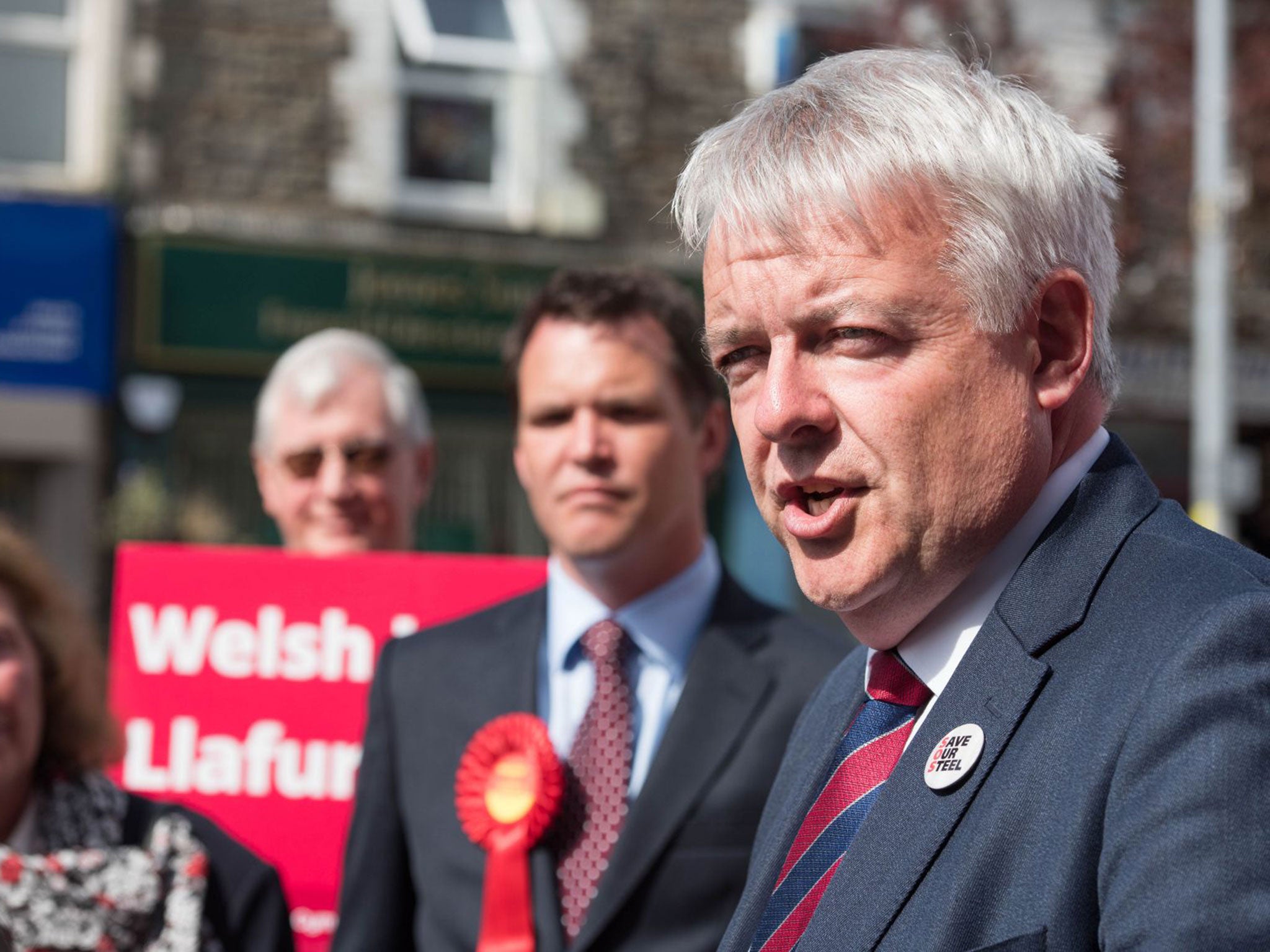Brexit: Wales and Scotland to launch challenge against Theresa May's bid for sweeping new powers
Exclusive: Devolved goverments to begin drive on Tuesday to force concessions from the Prime Minister

Wales and Scotland will formally lay down a challenge to Theresa May’s Brexit plans this week, warning she risks a constitutional crisis if changes are not made.
Governments in both nations are expected to officially submit documents confirming their intention to withhold consent for the Prime Minister’s approach to EU withdrawal unless it radically alters.
Conservative ministers have admitted to The Independent that pushing on without their backing could hold up Brexit, while politicians outside England warn it will strain the UK at the seams.
The devolved governments claim Ms May’s key piece of Brexit legislation will see London snatch authority over key policy areas and give Conservative ministers unacceptably-strong powers to meddle with other laws.
It comes as MPs are expected to approve the EU (Withdrawal) Bill at its first Commons hurdle on Monday, but the Prime Minister faces a rebellion later on because even Tories want changes to the same clauses that are angering leaders in Cardiff and Edinburgh.
On Tuesday the Scottish and Welsh administrations will officially start their drive to force concessions, by submitting ‘legislative consent’ papers in their assemblies that set out how the bill must change.
Welsh First Minister Carwyn Jones told The Independent Ms May’s bill will allow Whitehall to “hijack” powers during Brexit that should be passed to Cardiff.
He said: “The UK Government is being rigid in its approach. It’s saying there is only one way. It’s acting as if it won a majority at the election in June. It didn’t.
“We will not consent to the bill as it is, and if they plough on that will spark a difficult constitutional problem. The House of Lords will also take a dim view of the UK Government ignoring the wish of democratically elected assemblies.”
Devolved leaders hope Tuesday’s submission will spur an intense negotiation with London, in which they want to see parts of Ms May’s bill re-written.
Assemblies in both nations will eventually vote on whether to back the bill, with consent needed before the proposed legislation finishes its stages in the House of Lords.
One source in Cardiff said: “Often we would reserve judgement on whether we could back something or not until the vote, but this piece of legislation is so offensive that there is no point in holding back.
“There is no groundswell of nationalistic feeling in Wales right now, but this sort of behaviour is the kind of thing that can fracture relations between countries – it’s not overselling it to use the word ‘crisis’.”
Legal advice quoted in both Edinburgh and Cardiff is that the Government needs consent from both capitals for parts of the bill and Brexit Secretary David Davis has said he intends to seek it.
But it is accepted that if either assembly were to withhold consent, the UK Government could carry on and attempt to pass the bill regardless.

The SNP’s Brexit spokesman Mike Russell said: “There is already a constitutional crisis here. If they push on without consent it will become deeper and much more intense.
“They would be legislating for both Scotland and Wales without our consents and that would be the first time that has happened in 20 years.”
Both the Welsh and Scottish governments insist their opposition is not about blocking Brexit and say they agree with Westminster that legislation, including limited new powers for ministers, is necessary.
But they argue they cannot back any law which would see them lose influence over areas rightfully theirs to control.

Mr Russell went on: “Our default position is that this is a technical measure and that we want to co-operate with them on it.
“The problem is that the technical measure they have proposed is a dog’s breakfast, that runs against the process of devolution.”
He added: “Now there has to be a shift from the UK Government.”
The Withdrawal Bill will see all EU laws currently affecting the UK brought on to the British statute book on the day of Brexit, with ministers then granted “Henry VIII powers” to alter regulations – so-called because they allowed the Tudor monarch to govern by proclamation.

Key objections focus on clauses 10 of the bill, setting out the Henry VIII powers, and 11 establishing how authority for policy areas that might affect Wales and Scotland could be diverted to London.
If the Government refuses to give way and wins consent then the House of Lords could also seek to amend the bill, with ministers fearing a lengthy period of ‘ping-pong’ between Parliament’s chambers would delay the Brexit time-table.
A Labour source in the Lords said: “In the end if the bill has not been properly scrutinised in the Commons for whatever reason, the Lords will look at stuff that’s not been looked at.
“We will encourage the Government to come back with its own amendments and if the bill still isn’t in the right shape there’s the possibility of amendments being pressed to votes and being sent back to the Commons.”
David Davis has confirmed that the Government will “seek the consent of the devolved legislatures” for the bill, but has not said what might happen if they do not give it.
One Conservative minister told The Independent it would be critical to win the backing of Edinburgh and Cardiff, but suggested concessions may not be enshrined in Ms May’s proposed legislation – a move that would allow both a compromise, and for the Prime Minister to save face.
The individual said: “Brexit is as far from a two-dimensional exercise as you can get. It’s multi-dimensional and one of the most important elements are the devolved governments.
“The point is that it’s not a question of not wanting to devolve power down, but a case of when, and getting it right in the context of trade and future relations. That means it may not be right to write things on to the face of the bill.
“We are trying to approach this in good faith. Working with us will get a better result than constantly saying the British Government wants some massive power grab.”
A Government spokesperson said: “We have been clear that we want to work with the devolved administrations to deliver a deal that works for the whole of the UK.
“This is essential legislation in the national interest – it gives powers to the devolved administrations that are necessary to ensure the statute book functions on our exit from the EU.”
Join our commenting forum
Join thought-provoking conversations, follow other Independent readers and see their replies
Comments
Bookmark popover
Removed from bookmarks